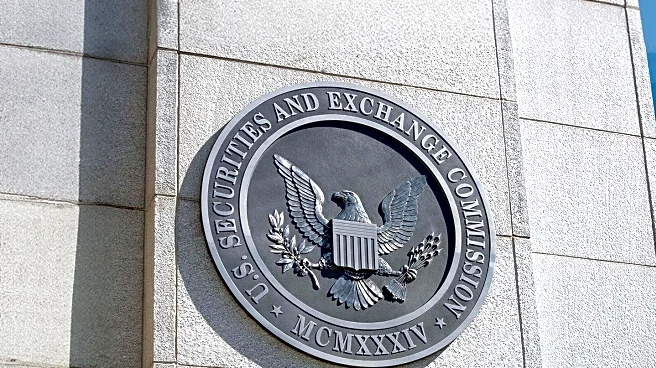What's Happening?
The Federal Trade Commission (FTC) is emphasizing the importance of transparency among influencers regarding their relationships with brands. This comes amid growing concerns about misinformation in the beauty industry, where influencers often promote
products without disclosing personal or financial ties to the brands. The FTC advises influencers to clearly distinguish sponsored content from other posts and to disclose if they received products for free. Additionally, influencers are prohibited from making claims about products that cannot be substantiated by the company. Despite these guidelines, many influencers fail to comply, leading to misleading promotions. For instance, influencers may attribute their appearance to certain products while actually using other methods like fillers or Facetune. This lack of transparency can negatively impact self-image, particularly among young audiences who are susceptible to unrealistic beauty standards.
Why It's Important?
The FTC's push for transparency is crucial in combating misinformation in the beauty industry, which can have significant implications for consumer trust and mental health. Young people, who are often the target audience for beauty influencers, may develop negative self-images due to unattainable beauty standards promoted through misleading endorsements. By enforcing transparency, the FTC aims to protect consumers from deceptive marketing practices and ensure that they make informed decisions. This move also holds influencers accountable, potentially leading to a more honest and ethical social media landscape. Brands may face increased scrutiny and pressure to substantiate claims, impacting marketing strategies and consumer engagement.
What's Next?
The FTC's guidelines may lead to stricter enforcement actions against influencers who fail to comply, potentially resulting in fines or other penalties. Influencers might need to adapt their content strategies to align with transparency requirements, which could affect their partnerships with brands. Brands may also need to reassess their marketing approaches to ensure compliance and maintain consumer trust. As awareness grows, consumers may become more discerning, demanding authenticity and proof of claims from influencers and brands alike. This shift could influence the beauty industry's dynamics, encouraging more ethical practices and fostering a culture of honesty.
Beyond the Headlines
The emphasis on transparency could spark broader discussions about the ethical responsibilities of influencers and the impact of social media on cultural beauty standards. It may lead to increased advocacy for mental health awareness and the promotion of realistic beauty ideals. Additionally, the role of technology, such as AI and digital editing tools, in shaping perceptions of beauty might come under scrutiny, prompting debates about their ethical use in influencer marketing.















